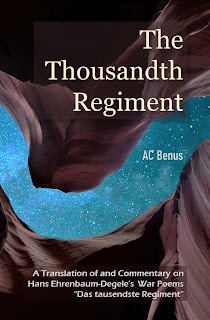With grateful thanks to Andrew Mackay for finding this poem for us and to Dave Cole via Twitter - who found me the information I needed enabling me to research Private Vickers. Andrew Mackay also sent me information about “Little Kitchener”.
Ambrose Vickers was born on 12th January 1875 in Bunbury, Chechire, UK. His parents were Samuel Vickers, a Journeyman bricklayer, and his wife, Mary Vickers, nee Large.
By the time of the 1891 Census, Ambrose was apprenticed to a local Blacksmith. The 1901 Census records him as boarding in Benedi Court Street, Bootle cum Linacre, West Derby, Lancashire, with his occupation being Coachsmith. He was still registered at the address in West Derby in 1911.
As far as I can ascertain, Ambrose was in the Army Service Corps during the First World War, serving as a driver. A further message from Dave Cole via Twitter (@MrCheapSeats) confirms my discovery.
Ambrose survived the war and in 1921 was registered as living in Slack Road, Barnston, Barnston, Wirral, Cheshire, working as a Blacksmith for Liverpool Corporation Electric Tramways Building & Maintanence.
In 1939 he was registered as a retired Blacksmith living in Benedict Street, Bootle, Bootle C.B., Lancashire.
Ambrose died in Liverpool in 1956.
Unfortunately I can’t find a photograph of Ambrose - if anyone has one please get in touch. The image above the poem on the postcard is of "Little Kitchener" - little Jennie Jackson from Lancashire. Jennie was known as "Young Kitchener" for the work she did during the First World War, collecting money to fund parcels for the fighting men. Jennie's mother, Kate, dressed Jennie as young Kitchener and they collected enough money to buy a field ambulance too. WW1 poet Thomas Napoleon Smith wrote a poem about Jennie - https://forgottenpoetsofww1.blogspot.com/2018/07/thomas-napoleon-smith-pen-name-tonosa.html
"The postcard shown above was written by Pte. A Vickers in appreciation of a parcel he had received from "Little Kitchener"
Private Ambrose Vickers was not a Burnley man, born in Bunbury in Cheshire, he was a Blacksmith by trade. At the start of the war he was almost 40 years old, and not eligible for front line service."
Bunbury is a village in Cheshire, UK, south of Tarporley and north west of Nantwich on the Shropshire Union Canal.
Sources: Find my Past, FreeBMD, and http://www.burnleyinthegreatwar.info/burnleypicturesandpostcards2.htm





